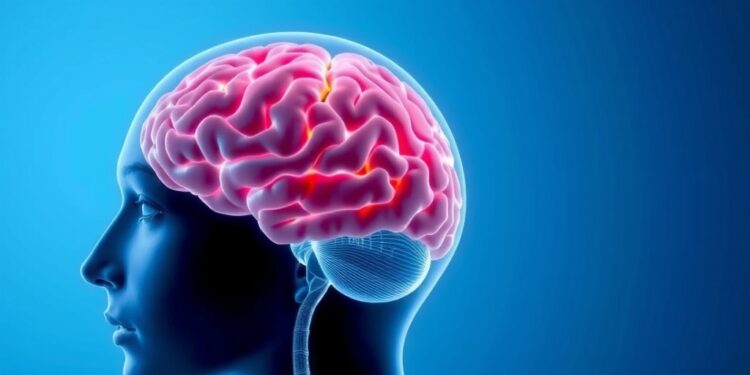Heart Health and Brain Volume: A Link to Cognitive Decline?
Emerging research underscores a crucial relationship between cardiovascular health and brain function, suggesting that individuals displaying early signs of heart problems may simultaneously experience sensory changes linked to cognitive decline. The recent meta-analysis published in the medical journal "Neurology" highlights how heart conditions such as systolic and diastolic dysfunction correlate with measurable alterations in brain health, including a reduction in brain volume—an early indicator of cognitive impairment or dementia.
Cardiovascular diseases remain a leading cause of morbidity and mortality globally. Their impact extends beyond just the heart, with growing evidence suggesting connections between heart health and brain integrity. In particular, researchers are turning their attention to the intricate relationship between systolic and diastolic dysfunction and brain volume. Systolic dysfunction occurs when the left ventricle fails to contract effectively, limiting blood circulation, while diastolic dysfunction refers to the left ventricle’s impaired ability to relax and fill with blood adequately. Both conditions signal a deterioration of cardiac function and might serve as silent indicators of impending cognitive issues.
The meta-analysis encompassed data from seven separate studies involving over 10,000 participants, predominantly aged around 67 years, drawn from diverse locations in the United States and Europe. These studies employed advanced magnetic resonance imaging (MRI) technique to assess brain volumes alongside evaluating heart function. The outcomes illustrated a disturbing trend; individuals with moderate to severe systolic dysfunction tended to possess smaller total brain volumes compared to those with normal heart function. Furthermore, individuals grappling with diastolic issues also demonstrated diminished overall brain volume, specifically in the hippocampus, the region of the brain critically associated with memory processing and retention.
This pivotal analysis offers evidence that the state of heart health significantly influences cognitive longevity. Frank J. Wolters, the lead author of the study, emphasized that the findings indicate a crucial implication: preserving heart function may play a vital role in maintaining mental faculties and cognitive abilities as people age. This connection underscores the need for heightened awareness and proactive management of cardiovascular health, particularly in older adults, to stave off cognitive deterioration.
As cognitive decline often manifests subtly and progressively, the attention to brain health in individuals with heart conditions becomes essential. The study suggests that monitoring cognitive functions—particularly among those with diastolic dysfunction—could facilitate early detection of memory-related issues, allowing healthcare providers to intervene timely to mitigate the progression of cognitive decline. This strategic approach not only emphasizes heart health but also serves as a preventative measure against dementia and related conditions—a growing concern as populations age.
Despite the compelling findings, it’s crucial to note the limitations posed by the study’s demographic characteristics. The research primarily focused on participants of white ethnicity, bringing into question the applicability of the findings across diverse racial and ethnic groups. Future research endeavors must strive to include a broader mix of demographic representations to validate and generalize these findings to the global population.
The implications of this research transcend individual health, extending into public health arenas where cardiovascular health can impact societal well-being. As cardiovascular diseases are prevalent worldwide, understanding their potential effects on brain health could lead to tailored public health interventions and preventative strategies. By prioritizing heart health, we could potentially unlock pathways to better cognitive function and quality of life as we age.
Substantial evidence underscores how heart health plays a pivotal role not only in physical well-being but also in mental acuity. Maintaining a healthy heart could be a cornerstone in fostering resilience against cognitive decline. Strategies promoting cardiovascular health are vital, as they may serve as the first line of defense against mental degradation, paving the way for healthier aging.
Moreover, this growing body of knowledge invites individuals, healthcare providers, and policymakers to rethink the management of health as a holistic endeavor. Integrative approaches that encompass both cardiovascular and cognitive health could emerge as transformative in chronic disease management. Such strategies could lead to increased awareness, improved health literacy, and subsequently, the prevention of widespread cognitive decline.
In conclusion, the findings of the meta-analysis glaringly highlight the intertwined nature of heart and brain health. As research continues to evolve, understanding this relationship may usher in new paradigms of treatment and prevention, emphasizing the significance of comprehensive health evaluations that scrutinize both the heart and the brain in pursuit of longevity and cognitive vitality.
Healthy lifestyle choices—including a balanced diet, regular exercise, and cardiovascular monitoring—could significantly impact both heart health and cognitive function. Engaging in protective measures to bolster heart performance could serve as a vital investment in preserving cognitive reserves.
The future of cognitive health promises to align more closely with cardiovascular understanding, bridging a historically fragmented medical perception. Given the data indicating the connections between heart health and cognitive decline, future interventions focusing on heart preservation may indeed herald a new era in the realm of healthy aging.
By leaning into this essential connection, we may set the stage for a future where both heart and brain health are prioritized simultaneously, leading to happier, healthier societies that are more resilient against the specters of aging-related cognitive decline.
Subject of Research: The relationship between early heart problems and brain health changes associated with dementia.
Article Title: Heart Health and Brain Volume: A Link to Cognitive Decline?
News Publication Date: March 26, 2025
Web References: Neurology, American Academy of Neurology
References: Not specified
Image Credits: Not specified
Keywords: Heart health, brain health, cognitive decline, dementia, systolic dysfunction, diastolic dysfunction, brain volume, meta-analysis, aging, cardiovascular health.




